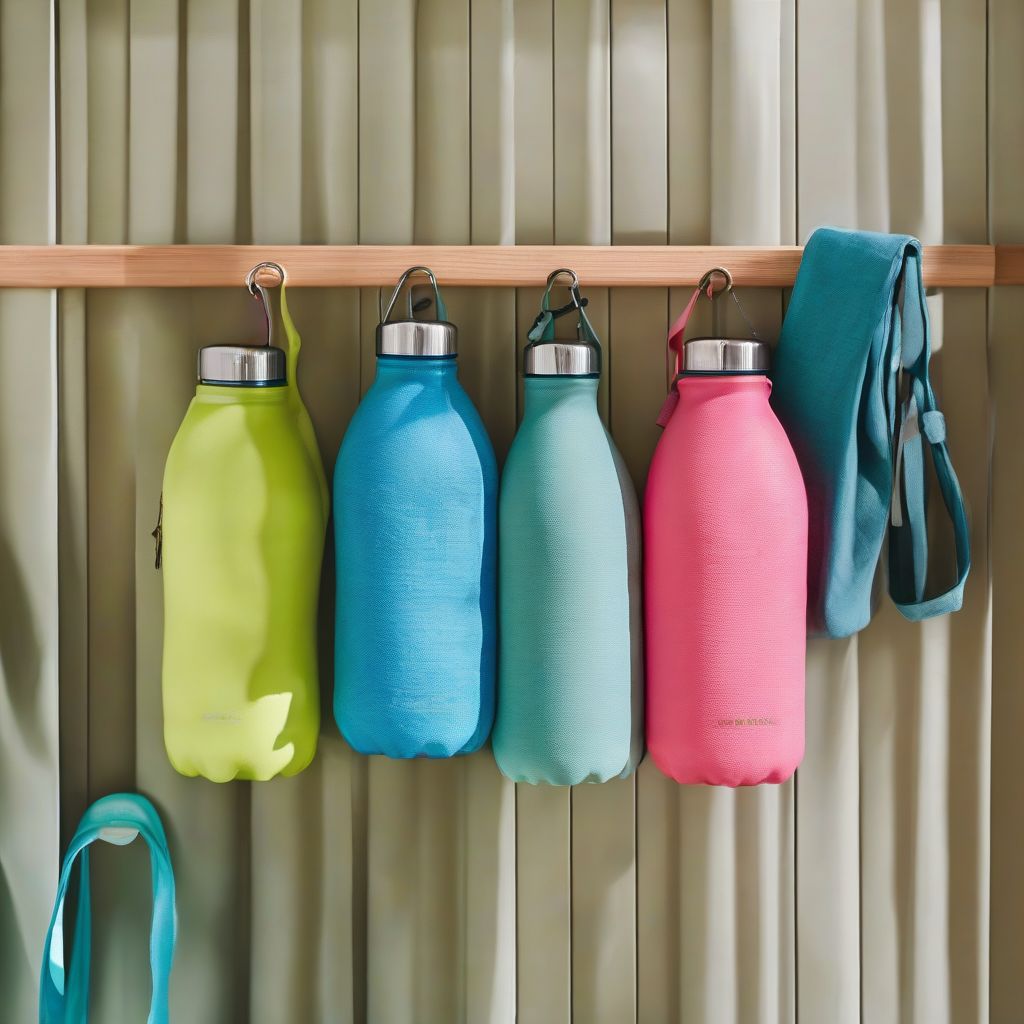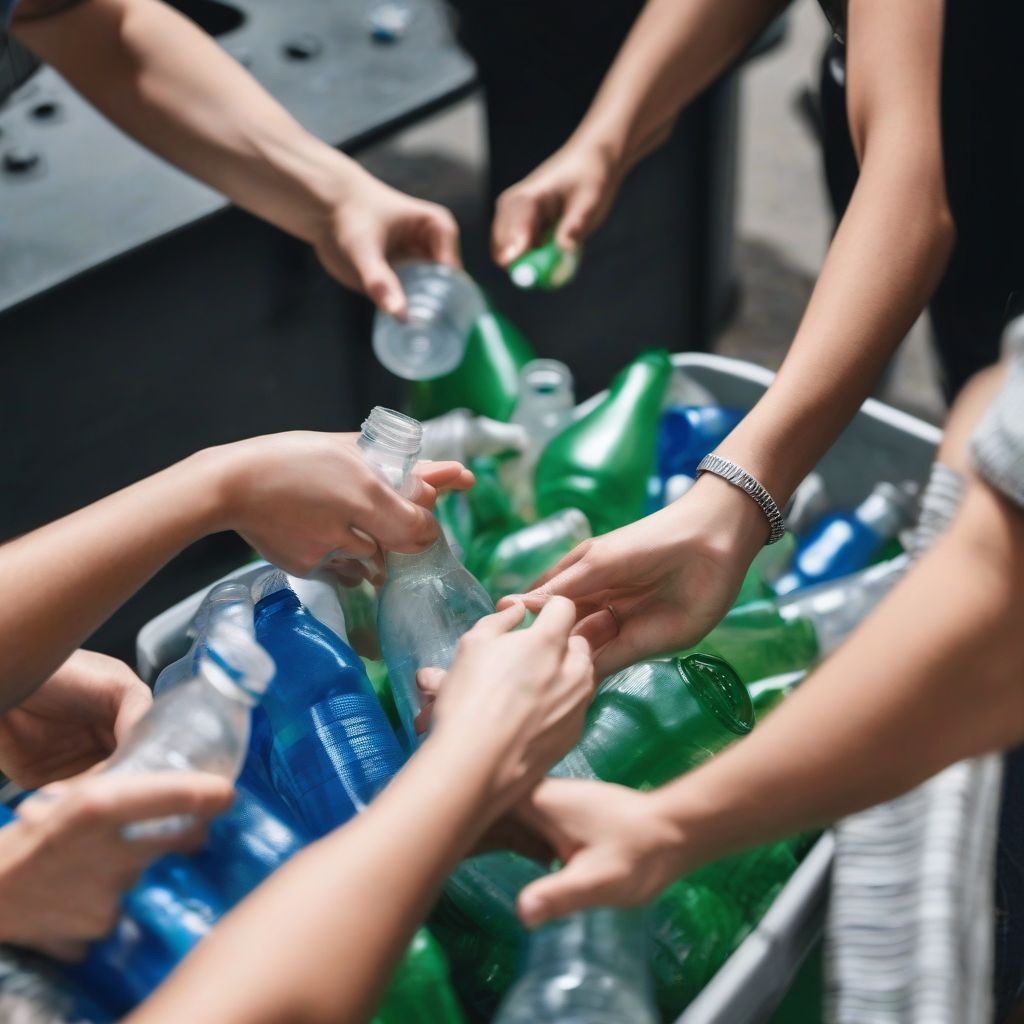Have you ever stopped to think about how much plastic you use in a single day? From the moment you wake up and brush your teeth to the container you store your leftovers in, plastic seems unavoidable. As a nutritionist, I’m passionate about health – both yours and the planet’s. The good news is that reducing plastic use can be easier than you think, and it all starts with small, conscious changes. Let’s dive into practical tips to transform your daily routine into one that’s lighter on the planet!
Why Reducing Plastic Matters for You and the Environment
Plastic pollution is a global issue with far-reaching consequences. Here’s why ditching single-use plastics should be high on our priority list:
- Environmental Impact: Plastic takes hundreds of years to decompose, polluting our oceans, landfills, and ecosystems. This harms wildlife, disrupts food chains, and contributes to climate change.
- Health Concerns: Some plastics contain harmful chemicals that can leach into our food and water, potentially posing risks to our health.
- Resource Depletion: Producing plastic requires significant amounts of fossil fuels and water, contributing to resource depletion and environmental damage.
Simple Swaps for a Plastic-Free Kitchen
The kitchen is often a plastic hotspot. But fear not! These simple swaps can make a world of difference:
1. Ditch the Plastic Bags
- Reusable Shopping Bags: Always carry reusable bags for grocery shopping. Cloth bags are durable, while mesh bags are great for produce.
- Bulk Bins and Reusables: Buy grains, nuts, and snacks from bulk bins using your own reusable containers or cloth bags. This minimizes packaging waste.
2. Rethink Food Storage
- Glass Containers Rule: Invest in a set of glass containers for leftovers, lunches, and pantry staples. They’re durable, microwave-safe, and don’t leach harmful chemicals.
- Ditch the Cling Wrap: Opt for reusable beeswax wraps, silicone food covers, or simply use plates to cover bowls in the refrigerator.
3. Choose Sustainable Hydration
- Reusable Water Bottle: Always have a reusable water bottle by your side. Fill it up at home, work, or refill stations instead of buying single-use plastic bottles.
- Filter Your Water: Consider using a water filter pitcher or installing a faucet filter to reduce the need for bottled water.
 Reusable Water Bottles and Bags
Reusable Water Bottles and Bags
Eco-Friendly Choices for On-the-Go
Maintaining a plastic-free lifestyle doesn’t stop at home. Here’s how to stay sustainable on the move:
4. Pack Your Own Lunch
- Reusable Lunch Containers: Invest in a durable, reusable lunch container with compartments to separate your food.
- Skip Single-Use Cutlery: Carry your own reusable cutlery set (bamboo or stainless steel) to avoid plastic utensils.
5. Coffee Shop Conundrums
- Bring Your Own Cup: Many coffee shops offer discounts for bringing your own reusable mug. It’s a win-win for your wallet and the planet.
- Say “No” to Plastic Straws: If you need a straw, opt for reusable ones made from stainless steel, bamboo, or glass.
6. Mindful Shopping Habits
- Choose Products with Minimal Packaging: Look for items with minimal or plastic-free packaging. Often, less packaging means less processing and fresher ingredients.
- Support Eco-Conscious Brands: Support businesses committed to sustainability and using eco-friendly packaging.
Making a Difference at Home and Beyond
Reducing plastic use extends beyond individual choices. Here’s how to amplify your impact:
7. Spread the Word
- Share Your Journey: Talk to friends, family, and colleagues about your efforts to reduce plastic use. Sharing tips and inspiring others can create a ripple effect.
- Support Plastic Ban Initiatives: Advocate for policies that reduce single-use plastics in your community and support organizations working towards plastic-free solutions.
8. Proper Disposal and Recycling
- Recycle Right: Familiarize yourself with your local recycling guidelines. Not all plastics are recyclable, so ensure you’re disposing of them responsibly.
- Reduce Before You Recycle: Remember, the most sustainable option is to reduce consumption in the first place. Recycling should be a last resort.
 Recycling Bins with Plastic Bottles
Recycling Bins with Plastic Bottles
[amazon bestseller=”reusable-water-bottle”]
Conclusion: Small Changes, Big Impact
Reducing plastic use in your daily life may seem like a daunting task, but it’s crucial to remember that every small step counts. By adopting these simple swaps and mindful practices, you can significantly decrease your plastic footprint and contribute to a healthier planet. It’s about making conscious choices that align with your values and inspire those around you. Let’s embrace a lifestyle that prioritizes both personal well-being and environmental sustainability. Remember, the future of our planet depends on the choices we make today. Let’s choose to make a difference, one reusable bag and conscious decision at a time!
What are your favorite tips for reducing plastic use? Share your thoughts and eco-friendly hacks in the comments below!
